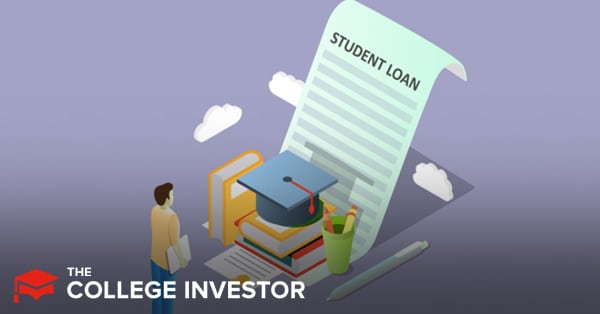
If you’re planning to take out federal student loans, you’ll be required to take student loan entrance counseling. The required introduction to your student loans covers a wide swath of financial topics you’ll encounter throughout your career in higher education and beyond.
If you're an undergraduate being asked to take student loan entrance counseling, that means you're taking out your first Direct Subsidized Loan or Direct Unsubsidized Loan. Graduate students must also take the counseling course before they can receive their first Direct PLUS Loan.
But what exactly is student loan entrance counseling? And is it worth the time? In this quick guide, we'll explain what it offers and how it could impact your finances for years to come.
What Is Student Loan Entrance Counseling?
Student loan entrance counseling aims to help you better understand the student loans you're about to sign up for. Although the educational course should only take 20 to 30 minutes to complete, many critical financial lessons are embedded in the content.
The counseling session requires you to complete six modules. Here’s a closer look at each:
1. Estimate The Cost Of Your Education
In the first step, you’ll learn more about the total cost of your education. The module will help you build an accurate cost of attendance based on your school’s cost of attendance, direct costs, and indirect costs.
With a better understanding of your educational costs over a four-year period, you can prepare yourself for funding the entire education.
2. Paying For Your Education
Once you’ve built out an estimated cost for the entirety of your education, you’ll move into the next module, which covers information on how to pay for your education.
At this stage, the course will cover several types of aid you won’t have to repay. A few of these sources include grants, scholarships, federal work-study, part-time jobs, tuition payment plans, and more. The system will encourage you to use these sources before tapping into student loans.
After covering other funding sources, you’ll take a closer look at the basics of a loan. The goal is to explain exactly how your loan balance will grow over time.
Additionally, you’ll take a closer look at the difference between federal and private student loans. As the focus of the course is on federal student loans, you’ll see an emphasis on tapping into more affordable federal loans before exploring your private loan options.
3. Federal Student Loans
At this point, the course will dive into greater detail about federal student loans. You’ll learn exactly how federal student loans work. The process of obtaining a federal student loan is broken down into great detail. From filling out the Free Application for Federal Student Aid (FAFSA) to signing a Master Promissory Note (MPN), the course takes you through the step-by-step process.
It covers the different types of student loans that you can tap into. These include Direct Subsidized Loans and Unsubsidized Direct Loans. Both offer affordable interest rates but have different eligibility requirements and handle interest charges differently while you're in school.
The course will cover your federal loan limits based on your dependency status. You can compare these limits with your expected cost of attendance to determine whether or not your federal student loans will provide all of the funds you need.
Finally, this section covers how you will receive your student loan funds. Additionally, it will briefly touch on your responsibilities as a federal student loan borrower.
4. How Much You Can Expect To Borrow
At this point, you will veer away from the standard coursework and dive into your personal numbers. Armed with your expected educational costs, you can extrapolate how much you plan to borrow throughout your college career.
If there is a difference between the amount of funding you’ll need and the amount of funding you are offered, the course recommends you only borrow what you need. In fact, it prompts you to contact your financial aid office about returning surplus funds.
Additionally, this section will encourage you to keep your student loan burden manageable by making interest payments on your student loans while you're in school. Although this isn't always possible, it could save you thousands in interest payments in the long term.
Related: Student Loan Borrowing Limits
5. Prepare For Repayment After School
Although you're only at the beginning of your student loan journey, the course covers details on preparing yourself for repayment after leaving school. You’ll find information on the grace period and learn more about your repayment responsibilities.
Importantly, you’ll also learn about your repayment plan options. In some cases, you can choose an income-driven repayment plan as an alternative to the standard ten-year repayment plan.
6. Consequences Of Not Repaying Student Loans
Last but not least, the counseling will explore the consequences of not repaying your student loans. The course recommends contacting your loan servicer if you can't meet your monthly payments to consider an alternative before your loans fall into delinquency or default.
Unfortunately, there are big consequences for student loan borrowers that default or become delinquent. You may encounter additional costs, wage garnishments, tax refund withholdings, and a lower credit score.
Luckily, you’ll find several options to help you avoid the issues that come with default or delinquency. Finally, the course will cover ways to lower your student loan burden.
Who Is Required To Complete Student Loan Entrance Counseling?
Student loan entrance counseling is a requirement for federal student loan borrowers. If you're an undergraduate student that's receiving your first Direct Subsidized Loan or Direct Unsubsidized Loan, you'll have to complete the counseling before it can be disbursed. The same is true for graduate students who are taking out their first Direct PLUS loan.
Although the modules will only take around 30 minutes to work through, you’ll find some useful information tucked into the course. When you get started, bring your StudentAid.gov account credentials, school details, Financial Aid Offer Letter, and a breakdown of your school’s tuition and fees.
Is Student Loan Entrance Counseling Worth It?
As with most courses, you'll get out of student loan entrance counseling what you put into it. It does offer some valuable information. Although you may already know some of the basics, the opportunity to take a closer look at your specific financial situation and numbers can be helpful.
Of course, you can complete the course without absorbing any information. However, the short counseling session is worth paying close attention to. After all, your choice to take on student loans to fund your education will impact your finances for years to come.
Final Thoughts
Even if you aren’t interested in what the counseling session has to say, it's worth your time. You won’t be able to receive any federal student aid disbursements until you've completed the course in one sitting.
Ready to complete your required student loan entrance counseling? You can sign up for the course through the Federal Student Aid site.

Robert Farrington is America’s Millennial Money Expert® and America’s Student Loan Debt Expert™, and the founder of The College Investor, a personal finance site dedicated to helping millennials escape student loan debt to start investing and building wealth for the future. You can learn more about him on the About Page or on his personal site RobertFarrington.com.
He regularly writes about investing, student loan debt, and general personal finance topics geared toward anyone wanting to earn more, get out of debt, and start building wealth for the future.
He has been quoted in major publications, including the New York Times, Wall Street Journal, Washington Post, ABC, NBC, Today, and more. He is also a regular contributor to Forbes.
Editor: Clint Proctor Reviewed by: Chris Muller